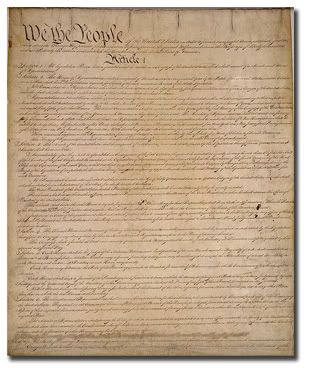#1. The Thesaurus Makes You Look Smarter
Any teacher who ever told you that this was a dangerous tool, due to the possibility of using words in the wrong context, was obviously a quack. The thesaurus transforms a boring, cookie cutter title such as

into something MUCH more eye-popping.

Much better! If you're unfortunate enough not to have Microsoft Word on your computer, please proceed to catch up with the rest of the world. Go on, nobody's waiting.
#2. A Thesis is Optional
I know all your teachers probably never shut up about how important your thesis statement is. But this thesis-based system of organization is really starting to get outdated. A much more modern idea on how to organize your paper is known simply as "Utter Chaos." If you want to be original with your paper and avoid sounding like everyone else in your class, check out the details here. As a matter of fact, this "Utter Chaos" principle can be applied in a myriad of ways. For example, this girl demonstrates its fantastic effects when organizing notes in a piece of music.
#3. Don't Bore Your Readers
A paper should really be no longer than one page. Think of the Gettysburg Address - written on a train ride to the place where Abraham Lincoln was to deliver it. This paper is still nationally renowned today! The Declaration of Independence?

One page.

Also, the Constitution.
These great documents are perfect examples of being concise. But you would be hard-pressed to find any longer articles that have really made a difference in the world.
So until next time, remember these three golden rules and watch your papers get A's (and sometimes these little upside-down L's with an extra dash that I can only assume are better than an A) left and write! (Pun may or may not have been 100% intentional).

I feel like you are completely right. The second title IS much more exciting, and any grader is sure to appreciate even the most subtle (as in your case) changes to the title of the book. Also, thanks to the wonderful world of Apple, I can use that Thesaurus option in any application! For example...
ReplyDeleteDearest Brother, I wish I could come home to play with you more often.
is magically transformed into:
Cherished Comrade, I desire I could approach residence to fool around with you additional frequently.
Hmmm... maybe a little something is lost along the way, but still - it is a powerful tool.
Oh my! Please to not fool around with your brother additional frequently! It just sounds wrong!
ReplyDeleteFooling around does sound a bit scandalous.
ReplyDeleteGuess what?! College is just the equivalent as your English group of pupils. A thesis is unquestioningly optional. Things on no account revolutionize.
ReplyDeleteI only found it a little bit sad that I could actually understand what that meant.
ReplyDeleteOh the wonders of the thesaurus. It has helped me many a time...as you can tell.
ReplyDelete